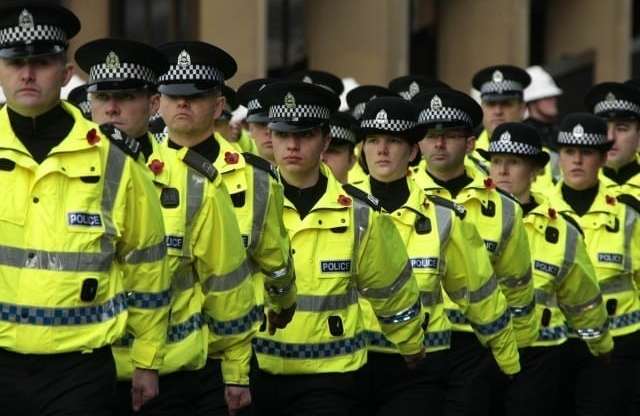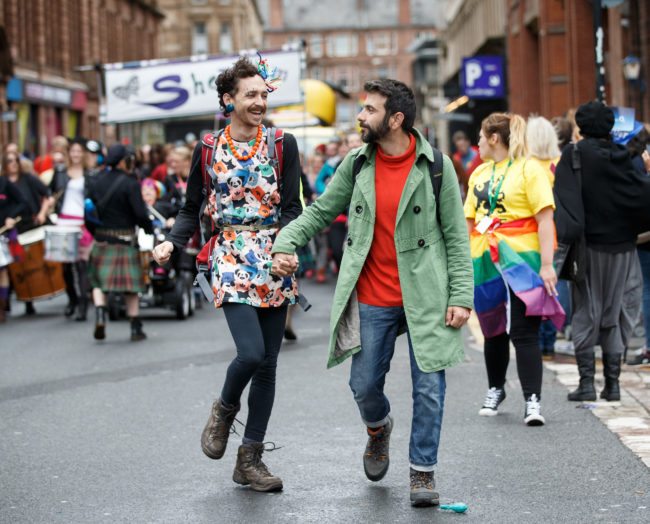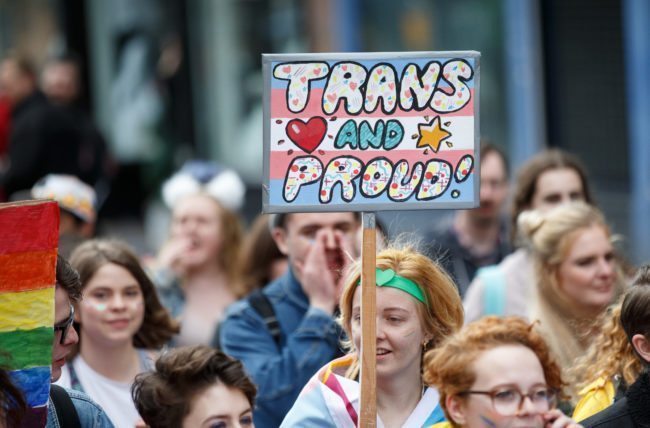Scotland should recognise gender and age as hate crime factors in UK first, top judge says

LGBT+ hate crimes have more than doubled throughout England and Wales (Robert Perry/Getty Images)
Scotland should become the first country in the UK to recognise gender and age as aggravating factors in hate crimes, a High Court judge has recommended.
A report by Lord Bracadale, a retired senior judge, said offences involving hostility on the grounds of gender and age should be covered by hate crime legislation, in addition to race, religion, disability, sexual orientation and transgender identity.
The recommendations were made as part of an independent review of hate crime legislation, which has been submitted to Scottish Ministers.
“My report is intended to enable Scottish politicians to debate the issues involved and to encourage public discourse,” Lord Bracadale said.
“In a civilised society people should be able to live together, respecting one another and treating each other fairly, regardless of differences,” the report reads.

Participants hold hands during the 2017 Glasgow Pride march (Photo by Robert Perry/Getty Images)
“Of course, legislation will not change attitudes on its own but it can do two things.
“First, clearly-defined hate crime legislation and well-developed procedures in the criminal justice system to deal with it will increase awareness of hate crime and give victims more confidence that it will be taken seriously by the police, prosecutors and the courts.
“Secondly, it can contribute to attitudinal change.”
Lord Bracadale’s review found no new legislation was necessary after the repeal of the Offensive Behaviour at Football Act earlier this year.
The law was designed to tackle sectarian behaviour among football fans, but critics said it was not effective.
The judge said hate crimes committed at football matches can be dealt with using existing laws, such as breach of the peace.
“Thus, hate crime offences committed in the context of a regulated football match held in Scotland could be prosecuted in Scotland under pre-existing criminal law,” Lord Bracadale said in the report.
“This would extend to behaviour occurring outside the football ground or on a journey to or from a match.”

An estimated 80 percent of transgender people in Scotland have experienced hate crime (Photo by Robert Perry/Getty Images)
The Equality Network, the Scottish LGBTI equality charity, welcomed Lord Bracadale’s recommendations but said more needed to be done to improve responses to hate crimes by the police, prosecutors and the courts.
“We welcome the report, and we hope that the Scottish Government will soon introduce a bill to update the law,” said Tim Hopkins, director of the Equality Network.
“We are pleased at the recommendation to update the existing law on hate crimes that target transgender people and those that target intersex people, recognising the difference. And we welcome the proposal for a new offence to deal with the stirring up of hatred through threatening or abusive conduct.
“This will fill a gap created by the repeal of the non-football related provisions of the Offensive Behaviour at Football Act.
“Changing the law is not the whole answer though; more needs to be done to further improve responses by police, prosecutors and courts, and to encourage people to report crimes to the police.”
According to 2017 research by the charity, 64 percent of lesbian, gay and bisexual people in Scotland have experienced hate crime.
The figure rose to 80 percent for transgender people and 77 percent for intersex people.

